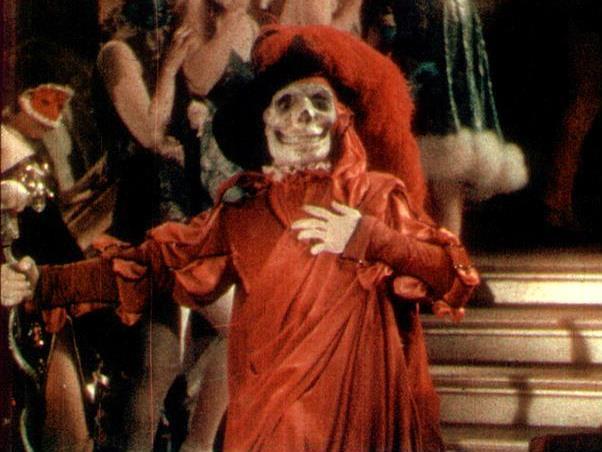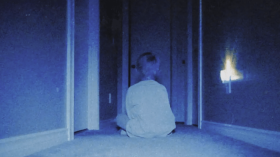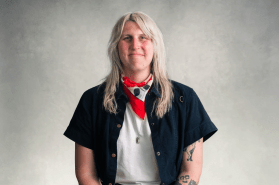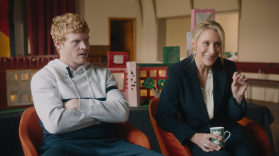Gadzooks! Be still my heart! Image: Phantom of the Opera, shot on the original three colour process in 1925.
Here is the release. More to come from us. Why, who, what, um….
Obvious reason: SA government, desperate to become a knowledge centre, going to the polls on March 17, has given them $6m and a top up 10% PDV rebate which takes the total tax subsidy to 40%.
Technicolor, by the way, is a French company, formerly Thomson, a media and technology conglomerate so excited by its new toy it named the whole group after it.
We know the government initiated the deal, it has been developed over the last two years through the Premiers department as an economic boost rather than the South Australian Film Corporation, and that the deal does not involve the Tonsley Park development.
Expect to see it operating from early 2019 after a start in the second half of 2018. Technicolor is hoping for strong growth – its Montreal enterprise, opened four years ago, was expected to employ 400 people and has now grown to a thousand.
The CEO is expected to come from within the company’s existing VFX brands to kickstart it, and replaced with someone local later. The company wants a CBD site of 3000m2 site, with space to grow.
Why call it Mill Film? It is an existing brand which was behind the Oscar for Best VFX for Gladiator. The name was then neglected, sliding into an advertising enterprise [cue images of battered cat asleep on a dumpster]. Now it is back as a premium brand with Adelaide as the first Mill Film Studio in a global plan.
—-
Hollywood media giant makes Adelaide visual effects capital of Australia
Global entertainment giant Technicolor has announced plans to establish a 500-person visual effects (VFX) centre in Adelaide, propelling South Australia as an international film production hub.
A major game-changer for the Australian film industry, Technicolor will establish ‘Mill Film’ in Adelaide – a $26 million 3000-plus square metre visual effects (VFX) studio.
The initial focus for Mill Film will be delivering VFX for major film studios and streaming services, with a later expansion into emerging opportunities in virtual and augmented reality.
Mill Film will comprise an Adelaide Centre of Excellence and VFX Academy, together accommodating 500 people – ranging from technologists to artists – when running at full strength within five years.
A French company, Technicolor employs more than 15,000 globally with facilities in Paris, London, Los Angeles, Montreal, New York, Vancouver, Bangalore and Shanghai.
Technicolor worked on the film The Shape of Water, recently nominated for 13 Oscars, along with films such as the Jungle Book, The Martian, Blade Runner 2049, Wonder Woman and Pirates of The Caribbean: Dead Men Tell No Tales.
The investment will be a boost for existing Adelaide VFX businesses, with the Centre of Excellence and Academy set to attract talented artists to South Australia from around the world.
The South Australian Government will provide up to $6 million from the Economic Investment Fund to support the project, which is expected to have an economic benefit of around $252.6 million over ten years.
Background
In December last year, the State Government announced a newly expanded Post Production, Digital and Visual Effects (PDV) rebate to foster new business development for large-budget PDV film productions that use VFX in blockbuster films.
The rebate scheme is designed to bolster the local industry and attract new companies to South Australia and in doing so grow the broader digital capabilities of the State.
Technicolor’s Adelaide establishment adds to major investments secured by IASA such as Boeing, NEC, Tic:Toc and VeroGuard which have a combined value of 7,878 new jobs and capital investment of more than $2.16 billion.
Quotes attributable to Premier Jay Weatherill
Los Angeles, Paris, London, Montreal, New York, Vancouver and now Adelaide. This exciting investment cements South Australia as a global centre for visual effects, and will create up to 500 new jobs in this hi-tech, creative industry.
Jobs are the State Labor Government’s number one priority, and the film industry is one of the State’s fastest growing sectors.
We are standing up for South Australian jobs, and investing in the new industries that will provide these jobs. We have a strong track-record of attracting new companies to SA, and will continue to grow the industries of the future so that our children can have great careers here.
Recently we announced an uncapped rebate scheme which has given us the competitive edge to secure Technicolor to SA.
Financial incentives like our new rebate scheme are combining with factors such as our talent pool, creative vibrancy, lifestyle and competitive business conditions, to foster SA as the Australian home of this fast growing global industry.
Quotes attributable to Technicolor’s Chief Executive Officer, Frederic Rose
The Government of South Australia has recognised the potential of the State becoming a destination for global VFX work, and importantly, has created an environment where the industry can be successful.
We picked Australia as an opportunity for expansion because it provides an ability to engage with a pool of proven creative talent; work with leading universities; and build on a modern and mature infrastructure that is critical for working on high-end VFX projects.
Investment Attraction South Australia worked with us to provide a complete investment package. The State Government’s 10 per cent PDV rebate, stackable with the Federal Government’s 30 per cent incentive was an opportunity too good to ignore.
Investment Attraction South Australia has made connections for us across the whole ecosystem to ensure our success in the State. They made it an easy decision to come to Adelaide, and I think it will become a global VFX destination once the secret gets out.





